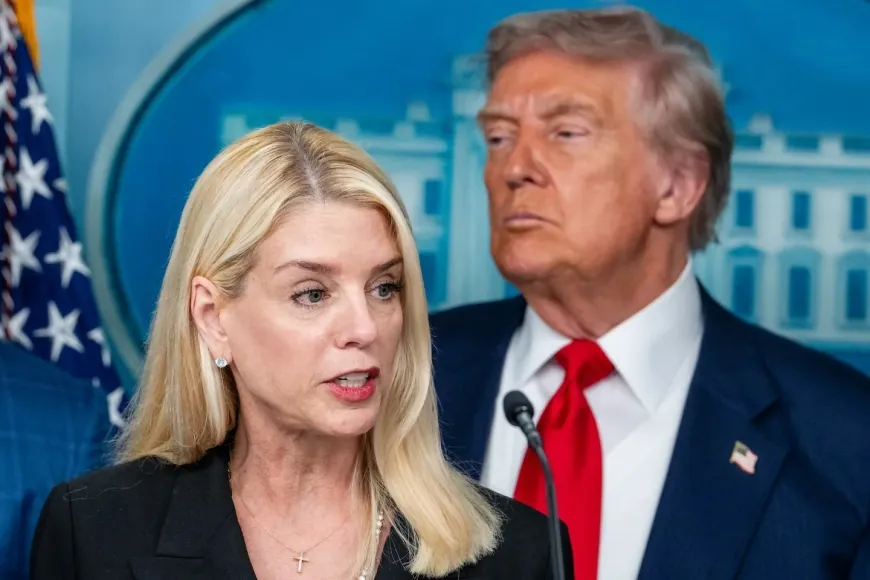Washington DC Sues Trump Over Attempted Takeover of City Police
Washington DC files federal lawsuit against Trump, claiming attempted police takeover is unlawful and threatens public safety — court hearing scheduled today.

Washington DC filed a lawsuit Friday seeking to block President Trump’s unprecedented attempt to take control of the city’s Metropolitan Police Department (MPD). Attorney General Brian Schwalb argued in federal court that the president overstepped his authority, jeopardizing both local governance and the safety of residents. The legal move follows escalating tension between city officials and the Justice Department, which has deployed hundreds of federal and National Guard personnel to enforce Trump’s directives.
DC Sues Trump Over Police Takeover
Washington DC has filed a federal lawsuit claiming that President Trump exceeded his authority by attempting to take control of the Metropolitan Police Department. The city is asking the court for an immediate injunction to block the federal government from issuing further orders or assuming command of the police. A hearing is scheduled for 2 p.m. Friday.
Attorney General Brian Schwalb said the move threatens the autonomy of the city’s 700,000 residents and puts public safety at risk. The lawsuit argues that while the president can request assistance during an emergency, he cannot override the authority of locally elected officials or seize day-to-day control of the police department.
The case will test the limits of presidential power over municipal police in the nation’s capital, where federal oversight intersects with locally elected governance.
Federal Intervention and Enforcement Actions
The Trump administration justified the takeover by citing a “crime emergency” in the nation’s capital. In response, more than 1,750 personnel, including DC National Guard members, participated in an overnight operation. Officials report 33 arrests, with nearly half involving undocumented individuals.
While the White House framed the operation as necessary for public safety, critics argue that crime rates in DC have been declining in recent years, according to Justice Department data. The city’s lawsuit calls the federal action “disproportionate” and notes that it risks creating confusion among law enforcement agencies, potentially undermining local policing effectiveness.
The operation also sparked public concern, as the deployment of a large number of federal personnel into neighborhoods raised questions about civil liberties, jurisdiction, and the balance of power between federal and local authorities.
Controversy Over Police Leadership
Attorney General Pam Bondi issued an order appointing DEA Director Terrence Cole as “emergency police commissioner”, granting him authority over the MPD and requiring police leadership to seek his approval for key operational decisions. The directive rescinded certain local orders, including enforcement protocols related to street occupancy and public demonstrations.
City officials, including Mayor Muriel Bowser, argue that Bondi’s order disrupts the chain of command for the city’s 3,100 officers, endangering both personnel and the public. The lawsuit claims the order “sows confusion and threatens public safety” by placing federal authority above local leadership without statutory backing.
Analysts point out that this confrontation highlights the tension between federal emergency powers and local governance, particularly in a district with unique legal and political status.
Home Rule Act Puts Limits on Presidential Authority
Washington DC’s government operates under the Home Rule Act of 1973, which gives the city elected officials, including Mayor Muriel Bowser and the city council, authority over local services, including the Metropolitan Police Department. Congress retains oversight over budgets and legislation but generally does not interfere with daily city operations.
The law allows the president to temporarily take control of the police only in clearly defined emergencies, with such powers lasting up to 30 days unless extended by Congress. The DC lawsuit argues that Trump’s claim of a “crime emergency” does not meet these conditions. The city contends that the president may request support from local police in emergency situations but cannot unilaterally replace city leadership or take over routine police operations.
Bowser’s administration says it has followed federal requirements for emergency assistance when needed, but it rejects any effort to transfer permanent authority to the federal government. The mayor has also reiterated her push for DC statehood, emphasizing that residents should have full control over their police and other city services without federal interference.
Federal Court to Decide DC Police Control Dispute
Following the lawsuit, Attorney General Brian Schwalb formally informed Police Chief Pamela Smith that she is not legally obligated to follow Bondi’s emergency order. The federal court will now decide whether the city can retain control over the Metropolitan Police Department or whether the president can temporarily assume authority under his claimed emergency powers.
Legal experts say the case could establish a significant precedent for the limits of presidential intervention in DC, a city with unique federal oversight. The outcome may influence how future administrations handle emergencies in the capital, including the deployment of federal forces and the chain of command within local law enforcement.
Meanwhile, city leaders, including Mayor Muriel Bowser, have emphasized that maintaining local control is critical to public safety and governance. The case has attracted national attention as a legal test of the balance between federal authority and local autonomy in one of the country’s most politically sensitive jurisdictions.
Also Read: Trump’s War on Indian Talent and Trade Is Backfiring on the U.S. Economy































































